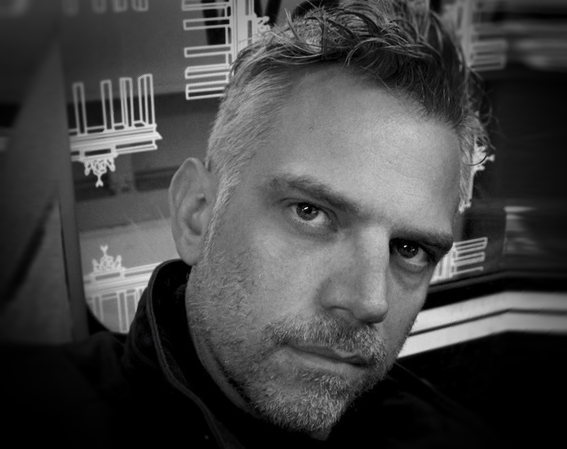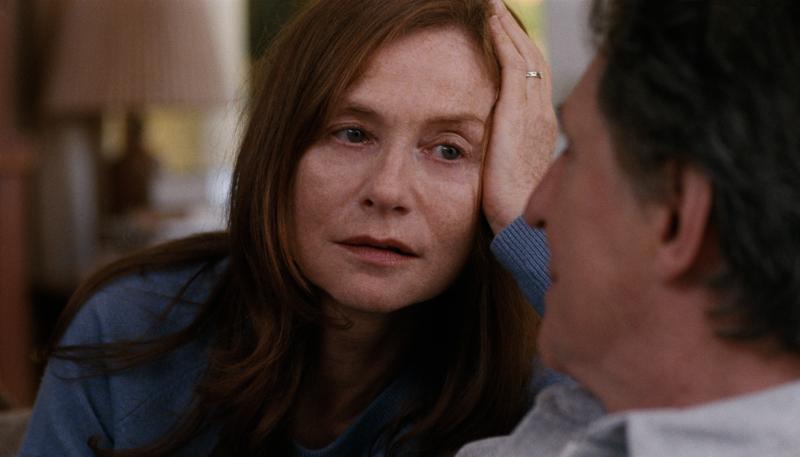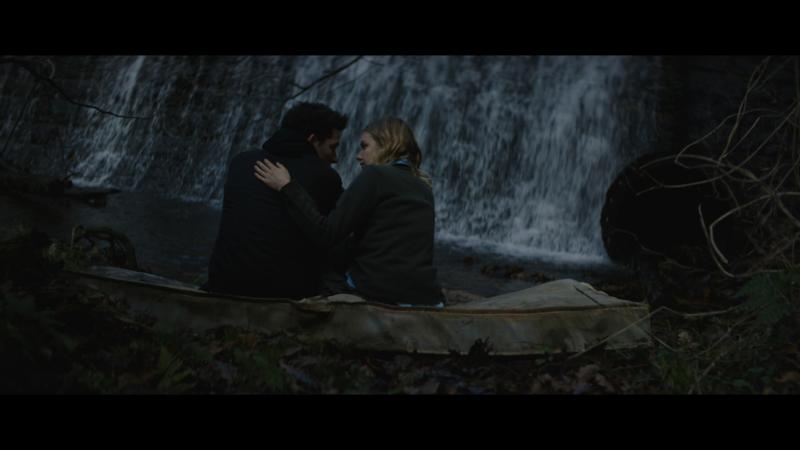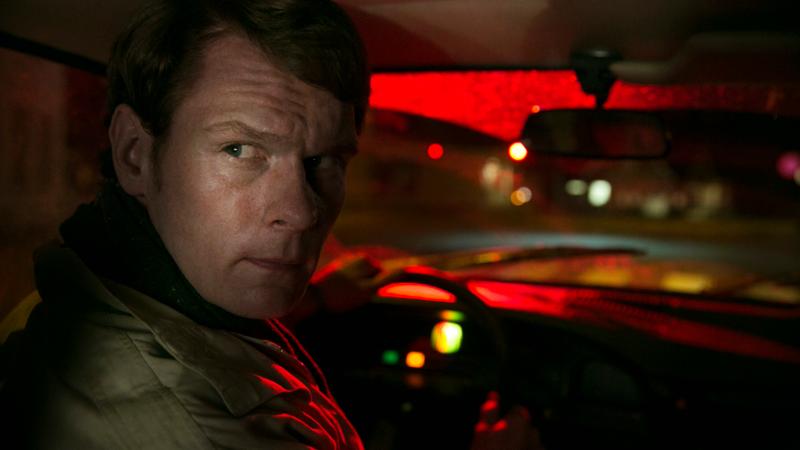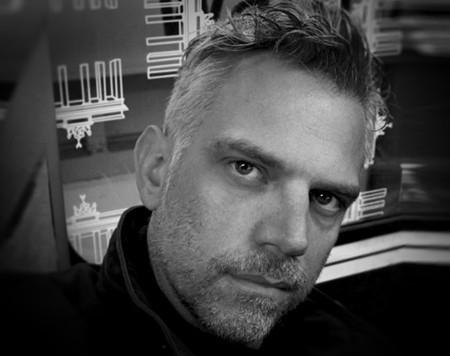Joachim Trier's drama "Louder Than Bombs" is like a jigsaw puzzle. The subject of the puzzle is a deceased war photographer, Isabelle Reed (Isabelle Huppert), and the pieces are memories of her seen through the eyes of her husband and her two grown sons, played by Gabriel Byrne, Jesse Eisenberg and Devin Druid.
The film doesn't try to find the truth about Isabelle but instead explores the marks that the loss of her has left on the three men, and how it has affected their relationships with each other and with women.
A Mesh of Stories
Trier's editing partner, Olivier Bugge Coutté of Denmark, put together the composition of the three characters' stories, deftly mixing past, future, fantasy, associations, reality and memories with different points of view on the events taking place over four to five days when the family gathers after the eldest son's return to his childhood home in New York.
"The film is cut in an essayistic style that we like: a mesh of multiple stories intermingling and making up a main story," Coutté says, comparing the narrative style to a novel that seamlessly digresses and switches focus between characters. As in Trier and Coutté's previous collaborations, "Reprise" (2006) and "Oslo, August 31st" (2011), "Louder Than Bombs" faces off with cinema's typical plot-advancing narrative style.
"The film has poetic momentum rather than plot momentum. When we digress, it isn't predicated on a plot-oriented logic but on a character-investigating, emotional and rhythmic logic," Coutté says.
"The weird thing about the film is that it seems pretty plot-oriented in the beginning. Watching the first 10 minutes, you think, 'Ok! The main character is going home to tell his children how his wife died.' But then it becomes about all these other things. In its style and storytelling, it's always breaking form. That's often an accusation, but I consider the stylistic breaks a strength."
"Damn, That's Well Edited"
Stylistic breaks, poetry, time jumps and digressions also distinguish Coutté's inspirations, including notable European directors like Nicolas Roeg, Andrei Tarkovsky, Jean-Luc Godard, Alain Resnais and Lars von Trier. "I have always been inspired by editing that stands out like a work of art and calls attention to itself," he says.
The editing of Lars von Trier's "Breaking the Waves" really floats his boat.
"Damn, that's well edited," he says. "It's so audacious – shooting an epic melodrama in 35mm anamorphic and then cutting it so brashly. I haven't seen the film for years, but I loved it back then. The hard jump cuts go back to the Nouvelle Vague, but here it was so radical. It's spot on the emotion.
"On one hand, jump cutting clears away all the in-betweens. On the other hand, they emerge in the viewer's head, because you fill the absence with your own presence. Space is made for all the poetry and story the viewer can put into the time jump. I find that hugely inspiring."
Like Political Science
Olivier Bugge Coutté, who got his name from his French father, more or less stumbled into editing. He got a bachelor's in political science in France but missed creative work, and in 1995 he enrolled at the European Film College in Ebeltoft. The college had a system, which in his second semester allowed him to take a specific class that only had four spots. So it had to be cool, he thought.
The class was on the AVID editing machine, and the school only had four of them because they were so expensive. The next semester he was having a ball editing his fellow students' footage from an action-film workshop. "I haven't left the editing room since," he says.
"When I switched to the film industry, I justified my choice by saying that editing reminded me of political science, because it's about structuring a story based on a vast and sprawling material. That's not half wrong. Editing combines the artistic and the poetic with intellectual considerations about dramaturgy and narrativity. That's still what attracts me to it."
In Ebeltoft, Coutté also met the Norwegian director Joachim Trier. Though they didn't do any projects together that year, they became good friends and were happy to run into each other again a year and a half later on the parking lot of the National Film and Television School in England. They soon moved in with two other guys in a "rundown rathole in Wembley," where no one ever cleaned or did the dishes. On the other hand, they did make films. Coutté edited Trier's second-year film "Pietà" and his graduation film "Still," among others.
Continuing their partnership after film school, they made a couple of commercials together, and Coutté edited a number of short films, music videos and documentaries, including Christina Rosendahl's "Stargazer" about the Danish rock band Swan Lee, and Christoffer Guldbrandsen's two political documentaries, "Lykketoft Finale" and "The Secret War." But his eye was always on cutting a feature.
Jesse Eisenberg and Devin Druid play the two grown sons in "Louder Than Bombs." Photo: Jakob Ihre
Doubting Memories
That happened when he did Trier's first feature "Reprise," in 2006, a sensitive portrait of a young, mentally unstable writer, whose story is always fluctuating between timelines, places, memories, fantasy and reality. The same style characterises Trier's "Oslo, August 31st,” which was selected for Un Certain Regard at Cannes 2011, and this year's Cannes participant "Louder Than Bombs."
"Memory was a recurring theme of those three films. When you start doubting memory, what's left of reality? What's left of a person if you change the past or lie about it, or it was all just something you imagined?"
On "Louder Than Bombs," Coutté was in New York, editing alongside the shoot. He continued cutting the film for a few months at Nimbus Film in Copenhagen before he and the director put the final touches on it in Norway in early March. In New York, Trier didn't have time to stop by the editing room, but he discussed the footage daily with his editor on the phone. Were there too few close-ups, too little dialogue? Is it possible to understand what's going on?
"The way we cut is basically laid down in the script – say, when one scene is shot at two different locations. But only in the editing do we develop the form of how the scenes will specifically be cut together and see if the ideas even work," Coutté says.
"Joachim is very open to me trying out all sorts of things. We spend a lot of time together in the editing process, but he's never breathing down my neck. Because we're such good friends in private, I can say things like, 'Shut up, just give me three hours.'"
Icelandic Slowness and Danish Hijinks
Besides Trier's film, Coutté's editing credits over the last year include Christina Rosendahl's "The Idealist," Jeppe Rønde's "Bridgend" and Dagur Kári's Icelandic-Danish "Virgin Mountain," which, like "Louder Than Bombs," is co-produced by Mikkel Jersin and Bo Ehrhardt of Nimbus Film.
"Bridgend" and "Virgin Mountain" were two of the big winners at Tribeca Film Festival in New York, where Coutté took home the Best Narrative Editing award for "Bridgend."
"The two films couldn't have been edited more differently," he says.
"'Bridgend' is incredibly melodramatic and high pitched with lots of sequences that jump in time and space – like 'Reprise.' 'Virgin Mountain' is the craziest Icelandic film. The kind of thing with a close-up of a man staring into the camera for a minute and a half. Then he blinks. Cut to a long shot of him standing in one corner and then walking out of the frame. It's insanely slow. It's an amazing film, but completely unlike the tradition of 'Breaking the Waves.'"
Coutté's next project, "A Conspiracy of Faith," the third film in the Jussi Adler-Olsen crime series about the cold case Department Q, is another sharp genre switch. "It's pure hijinks," Coutté says.
"It's so fun to edit car chases and shootouts."
About Olivier Bugge Coutté
Editor, born 1970, Copenhagen. Danish mother, French father. Attended the European Film College, 1995-96. Graduated in editing from the National Film & Television School in England, 2001.
Editor of the political documentaries "Lykketoft Finale" and "The Secret War" by Christoffer Guldbrandsen, "Reprise," "Oslo, August 31st" and "Louder Than Bombs" by Joachim Trier, "Forestillinger" by Per Fly, "Beginners" by Mike Mills, "The 27 Club" by Erica Dunton, "Bridgend" by Jeppe Rønde, "The Idealist" by Christina Rosendahl, and "Virgin Mountain" by Dagur Kári.
